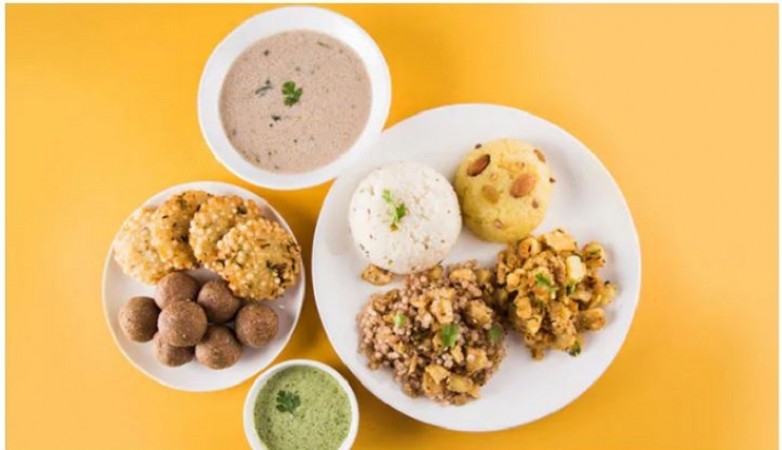
Navratri is a time of spiritual significance for millions of people around the world. This nine-day festival, celebrated with great fervor and devotion, involves fasting as a way to cleanse the body and mind. However, fasting during Navratri need not be a period of deprivation. Instead, it's an opportunity to embark on a journey of mindful and nutritious eating. This article will guide you on how to maintain a healthy and nutrient-rich Navratri diet to ensure you stay energetic and nourished throughout this auspicious period.
The Significance of Navratri Fasting
Navratri, which means 'nine nights,' is dedicated to the worship of the divine feminine energy, or Shakti. It is a time for reflection, meditation, and prayer. Fasting during Navratri is believed to purify the body and soul, preparing individuals to receive blessings and divine grace. To make the most of your fasting experience, it's essential to focus on the quality of the food you consume during this time.
Tips for a Nutrient-Rich Navratri Diet
Start with a Balanced Breakfast: Begin your day with a wholesome breakfast. Opt for nutrient-rich foods like fruits, yogurt, nuts, and seeds. These foods provide essential vitamins, minerals, and proteins to keep you full and energetic throughout the day.
Hydrate Wisely: Staying hydrated is crucial during fasting. Consume plenty of water, coconut water, and herbal teas to maintain your body's water balance. Dehydration can lead to fatigue and weakness, so be mindful of your fluid intake.
Include Whole Grains: When you break your fast, opt for whole grains like buckwheat, amaranth, and barnyard millet instead of refined grains. These grains are rich in complex carbohydrates and fiber, which provide long-lasting energy.
Protein Sources: Ensure you get enough protein to maintain muscle mass and feel full. Options like paneer, yogurt, and nuts are excellent sources of plant-based protein. If you consume non-vegetarian food, lean sources like chicken and fish can be included too.
Load Up on Fruits and Vegetables: Fasting is an excellent time to increase your intake of fruits and vegetables. These are rich in vitamins, minerals, and antioxidants. Incorporate a variety of colorful produce in your meals to ensure a broad spectrum of nutrients.
Healthy Fats: Include healthy fats from sources like ghee, olive oil, and avocado in your meals. These fats help in the absorption of fat-soluble vitamins and provide essential fatty acids for overall health.
Dairy Products: Low-fat dairy products like yogurt and buttermilk are rich in calcium and probiotics, which are beneficial for digestion and overall health. They can be included in various dishes and drinks.
Small, Frequent Meals: Rather than sticking to the traditional pattern of one large meal at the end of the day, consider breaking your fast with smaller, nutrient-dense meals throughout the day. This can help maintain your energy levels and prevent overeating at night.
Homemade Snacks: Make your snacks at home to ensure they are prepared with high-quality ingredients. Try recipes like sabudana khichdi, kuttu paratha, or rajgira puri for healthy and delicious fasting options.
Avoid Excess Sugar and Fried Foods: Excessive sugar and fried foods can lead to energy spikes and crashes. Instead, choose naturally sweet foods like dates or use alternatives like jaggery. Opt for shallow frying or air frying instead of deep frying.
Mindful Eating: Use this time of fasting for mindfulness and introspection. Eat slowly and savor your food, as this will not only help with digestion but also enhance your spiritual experience.
Fasting during Navratri can be a transformative experience, but it's crucial to focus on a nutrient-rich diet that sustains your energy levels and supports your overall health. By incorporating a variety of fruits, vegetables, grains, and protein sources, you can maintain a balanced and nourishing diet throughout these auspicious nine days. Remember, Navratri fasting isn't about deprivation; it's about celebrating health and spirituality.
Read More Lifestyle/Health Articles